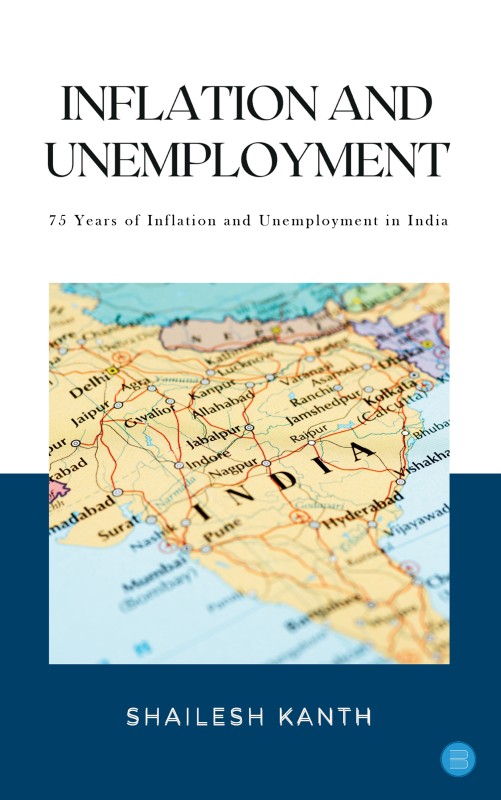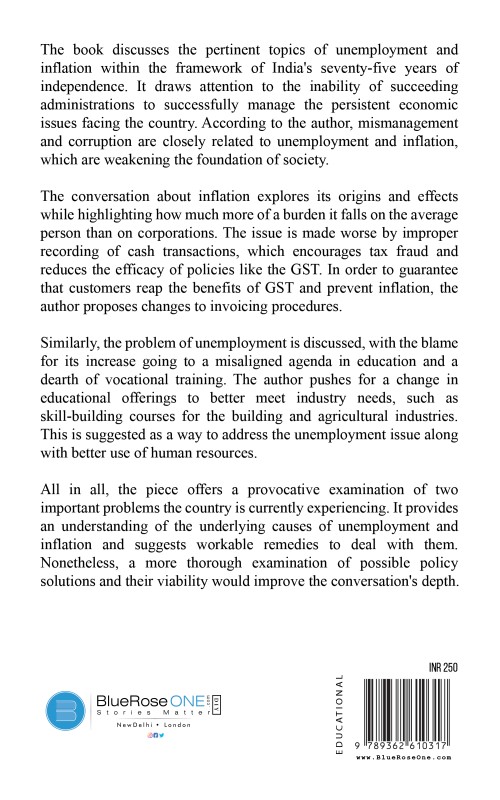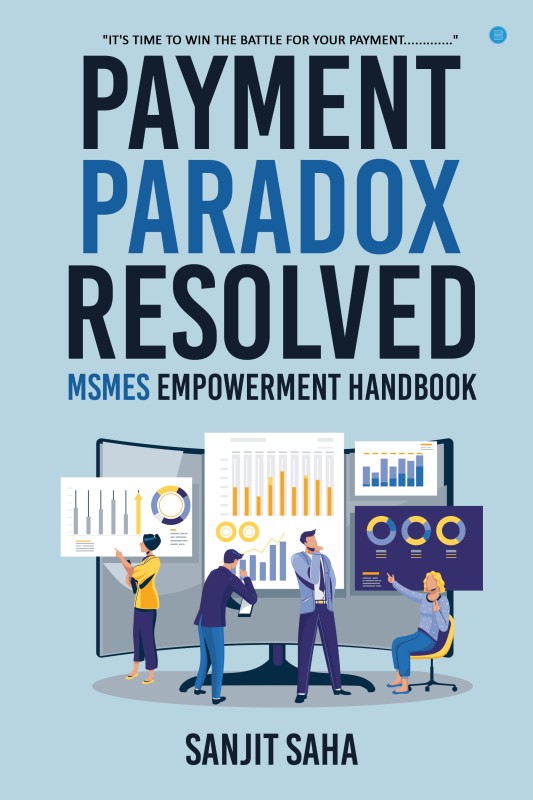Inflation and Unemployment
by Shailesh Kanth | 17-Apr-2024
(0)
The book discusses the pertinent topics of unemployment and inflation within the framework of India's seventy-five years of independence. It draws attention to the inability of succeeding administrations to successfully manage the persistent econo...
Original
Books
Fastest
Delivery
7-day
Replacement
Book Details
- Language : English
- Pages : 24
- ISBN : 9789362610317
- Genre: ACADEMIC
- Size : 5" x 8"
- Binding Type : PAPERBACK
- Age Group: + Years
- Paper Type : NATURAL SHADE
- Interior : BLACK & WHITE
- Cover : MATTE FINISH
- Book Type : PAPERBACK
- Tags : Inflation and Unemployment
-
Best Sellers Rank :
#1323 in Academics
#8366 in Global
Reviews
There are no reviews for this product yet.

 USD
($)
USD
($) AUD
($)
AUD
($) CAD
($)
CAD
($) EUR
(€)
EUR
(€) HKD
($)
HKD
($) MYR
(RM)
MYR
(RM) GBP
(£)
GBP
(£) SGD
($)
SGD
($)








